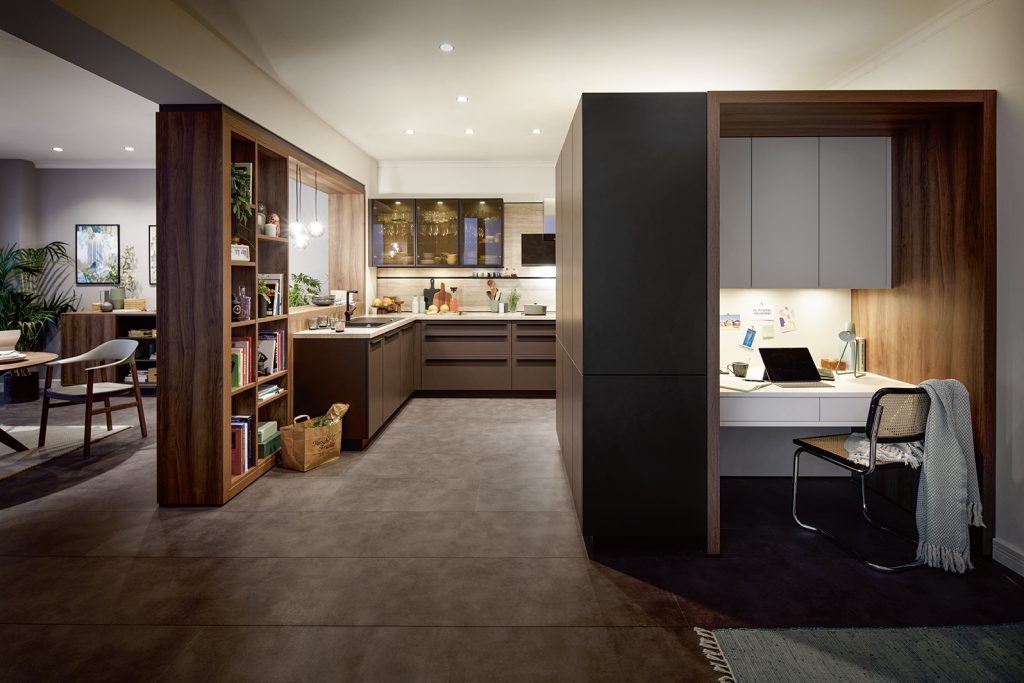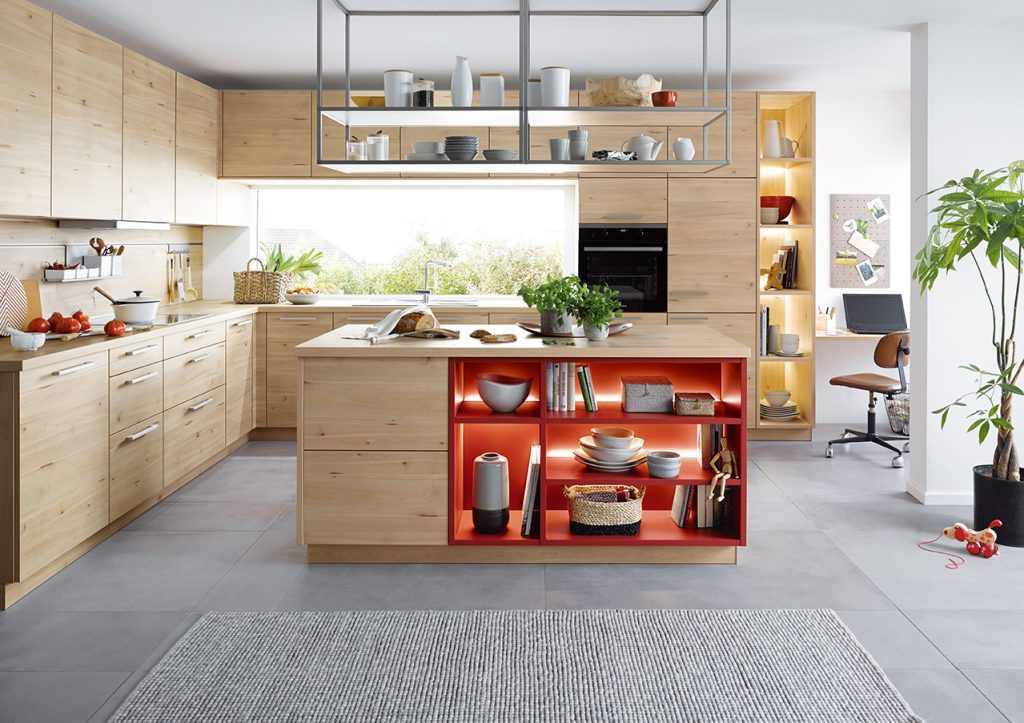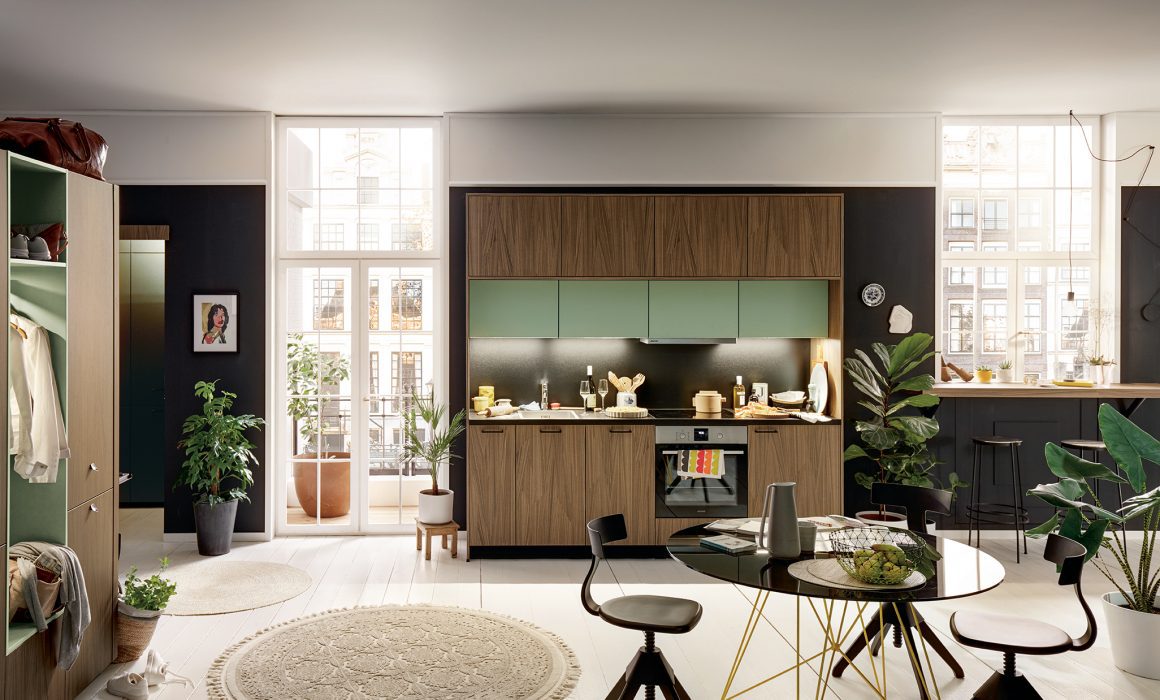Megatrends of the future: the big trends that will change how we design our homes forever
What does the future look like, and what might it have in store for us? What are the long-term consequences of COVID-19? These are the kinds of questions Harry Gatterer deals with on a daily basis as Managing Director of The Future Institute. Markus Schüller of Schüller Kitchens (one of the main kitchen brands we work with) joined Mr Gatterer to discuss up-and-coming “megatrends” and their effects on society, the planet and the kitchen…
What is a megatrend?
Markus Schüller: Mr. Gatterer, as Managing Director of The Future Insitute you deal with trend research and futurology on a daily basis. Your work focuses in particular on “megatrends”. Could you explain exactly what is meant by that term?
Harry Gatterer: Short-term trends frequently come and go, but when we’re talking about megatrends, four main criteria have to be met:
- The trend must have a duration of at least 50 years.
- It must apply to or affect all areas of life.
- The term “megatrend” describes highly complex global phenomena that are multi-layered and multi-dimensional in nature.
- Megatrends don’t simply emerge, they are the precise result of systematic observation, description and evaluation of new developments in business and society.
We’ve identified 12 megatrends according to this definition:
- Gender shift
- Health
- Globalisation
- Connectivity
- Individualisation
- Mobility
- New Work
- Neo-ecology
- Security
- Urbanisation
- Silver society
- Knowledge culture
Our modern world is incredibly complex and can no longer easily be compressed into the pages of a daily newspaper. That’s why it’s important for us to consider the context and look at the bigger picture. This helps us to understand what it means when a new future emerges or changes occur.
The home as retreat
Markus Schüller: Do you see the “cocooning” trend (i.e. the idea of the home as a place for retreat) as a short-term trend or is it here to stay?
Harry Gatterer: The furnishings industry has certainly benefited from people isolating at home. Of course, this will become slightly less prevalent once people are able to move around again. In structural terms, however, the concept of the home as a place people use as their base will continue to be extremely relevant in the future. Our new ways of working will also make the home a place where many different spheres of life converge and come together. Accordingly, boundaries between different zones within the home will become a very essential concept in spatial planning.

A flexible space
Markus Schüller: Creating flowing transitions between the different zones was also an important aspect when developing our new schüller.C collection. It is not for nothing that we have chosen the motto “Live. Love. Cook”. Planning a kitchen is a complex process that requires a lot of personalised advice from different trading partners. Do you think this could change?
Harry Gatterer: The change I can see happening has more to do with user concepts and the fact that there will no longer be a single customer in the classic sense. But it’ll still be necessary to have a place where things are shown and displayed. There will still be a place for studio and furniture store culture, because things like kitchens have a level of complexity that goes well beyond the configuration of a car, for example. This complexity lies not only in the sales process, but also in the assembly process. Perhaps we’ll see new purchase or rental concepts emerging – new ideas surrounding how the kitchen is used. I’m convinced we’ll see new experiments in this regards in years to come. However, these experiments won’t simply erase everything that already exists in one go. It’s more likely that they’ll consolidate the current approach to a certain extent.
Universal design
Markus Schüller: Our ageing society and a demographic shift towards what you call a “silver society” is another megatrend. What do you mean by the term “universal design” when used in this context?
Harry Gatterer: The fields of design and product development as a whole will be increasingly governed by the concept of universal design. This means that more products will appear that aren’t specifically targeted towards older or younger people. The target group of a product will no longer be determined by the age of the buyer, but by the requirements specific to the product itself. These requirements will be driven by a need for minimalism. Our society will be shaped by a desire for less. We’ve reached a stage where we have too much: too much information, too much to do, too much activity. Our society is characterised by a high level of stress, which is triggered by technology, and this won’t necessarily decrease. Consumer desires will therefore be shaped by a need for things that don’t create any further stress. This applies to all age groups.

Environmental consciousness
Markus Schüller: You’ve observed great progress with regards to ecology, characterised partly by more conscious shopping and an increase in consumption of organic and local food, but more significantly by a demand for higher quality products in general. What sort of an impact could this megatrend have in our kitchens and our lives in general?
Harry Gatterer: When activities such as travel suddenly became impossible, many people decided to invest in a better quality of life. Of course, the situation won’t remain exactly the same forever, but we now have more awareness of quality, both in general and from an ecological perspective.
What’s even more crucial, however, is the shift happening across the entire economy towards innovation through ecological approaches. We no longer consider the subject of ecology simply as a warning of collapse. It now represents new opportunities for the future. In the coming years, we’ll see an increase in ecological concepts coming from both new and existing companies, which will boost innovation. This shift will be so profound that it will change the way we think about the concept of service. What if we simply used washing machines rather than buying and selling them? What if we thought of devices as services? This concept of using machines rather than buying them is becoming increasingly established as an industry standard. It’s only a matter of time before this idea spills over into the consumer sphere.
Read the complete interview and the new Schüller product teaser video at: https://www.schueller.de/en/megatrends
To find out more about the latest Schüller collection, visit our flagship showroom in Hexham today.




